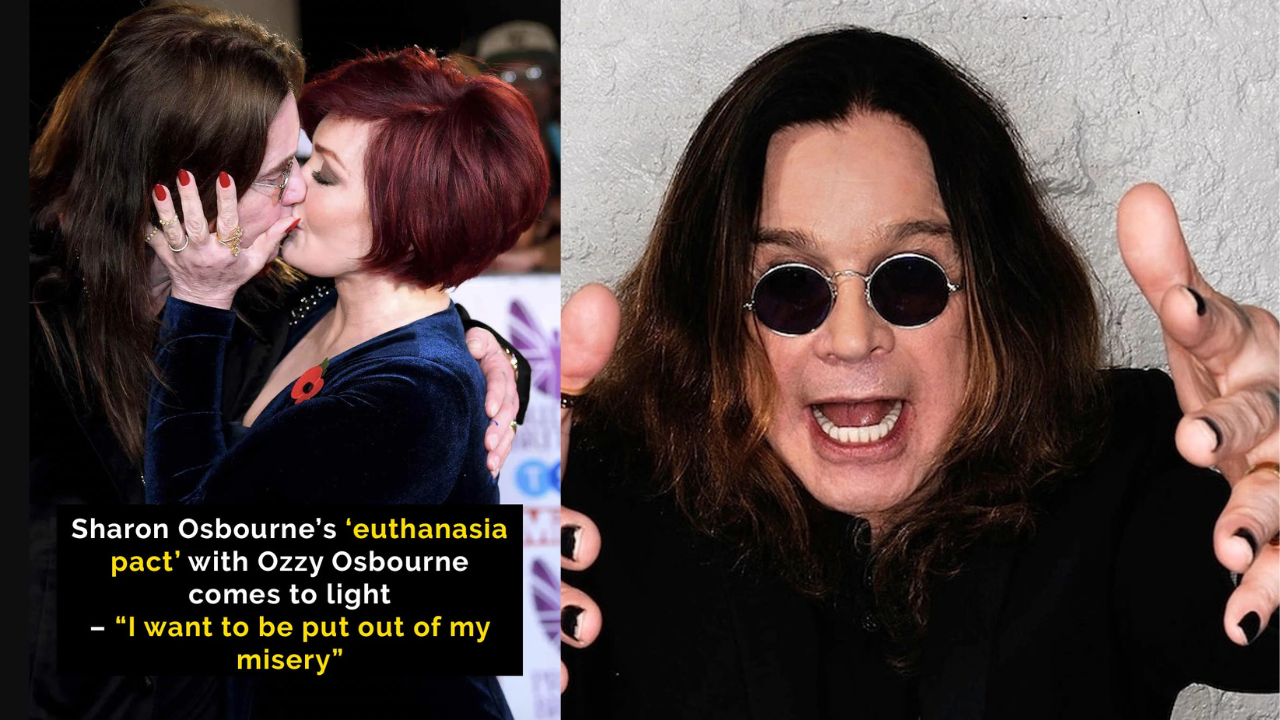The death of rock icon Ozzy Osbourne on Tuesday has reignited public interest in a deeply personal decision he and his wife, Sharon Osbourne, made decades ago — a mutual agreement to choose death with dignity over a slow mental decline.
Ozzy Osbourne, the trailblazing founder of Black Sabbath and heavy metal royalty, passed away at 76, surrounded by family just weeks after his final emotional performance in Birmingham. But beyond the music, headlines now swirl around a pact that shocked fans and stirred moral debate: if either Ozzy or Sharon were diagnosed with dementia, they would seek assisted suicide.
The couple’s decision wasn’t secret. Sharon wrote openly about it in her 2007 memoir, Survivor: My Story – The Next Chapter, after witnessing her own father’s battle with dementia.
“If this disease is to be my fate,” she wrote, “I don’t want to repeat history… We have a plan. My kids would take me to Switzerland where euthanasia is legal, and you can die with dignity.”

Later, in an interview with The Mirror, she confirmed it wasn’t just about her. “Ozzy and I have absolutely come to the same decision,” she said. “If Ozzy or I ever got Alzheimer’s, that’s it — we’d be off.”
The Osbournes even gathered their children — Jack, Kelly, Aimee, and Louis — around the kitchen table to share the plan. “They’ve all agreed to go with it,” Sharon said. “It’s taken away some of the fear of our ending and is a final gift of love to our kids.”
That raw honesty stirred global reactions, both supportive and outraged. But it also provoked internal family tension.
In the weeks leading up to Ozzy’s death, their daughter Kelly publicly denied the existence of such a pact. “That was bulls**t my mom said to get attention one time,” she snapped. “My dad’s not dying. Stop.”

But Sharon doubled down. As recently as 2023, on The Osbournes Podcast, she revisited the agreement, defending the logic: “Do you think we’re going to suffer instead? Mental suffering is enough pain without physical pain.”
When Kelly questioned the pact’s finality, Sharon gave a blunt reply: “Yeah, what if you survive and you can’t wipe your own butt, you pee everywhere, you poop, and you can’t eat?”
Ozzy himself was equally candid. In 2014, he told The Daily Mirror that if life ever reduced him to a hospital bed with machines and tubes, he wanted out. “Just turn the machine off,” he told Sharon. “If I can’t live my life the way I’m living it now… I’m going to Switzerland.”

Though the Osbourne family has not revealed Ozzy’s cause of death, the rock star had been battling Parkinson’s disease since 2019 and endured numerous spinal surgeries that limited his mobility. He gave his final performance sitting in a leather chair, refusing to quit but clearly struggling.
Now, as fans mourn the loss of a musical titan, the ethical echoes of Ozzy’s choices linger. Did he follow through on the pact? Was it simply a coping strategy for a family staring down mortality? Or was it, as Sharon described, “the last great act of love”?
Whatever the answer, one thing is clear: Ozzy Osbourne didn’t just live loud. He faced death with clarity — and on his own terms.






